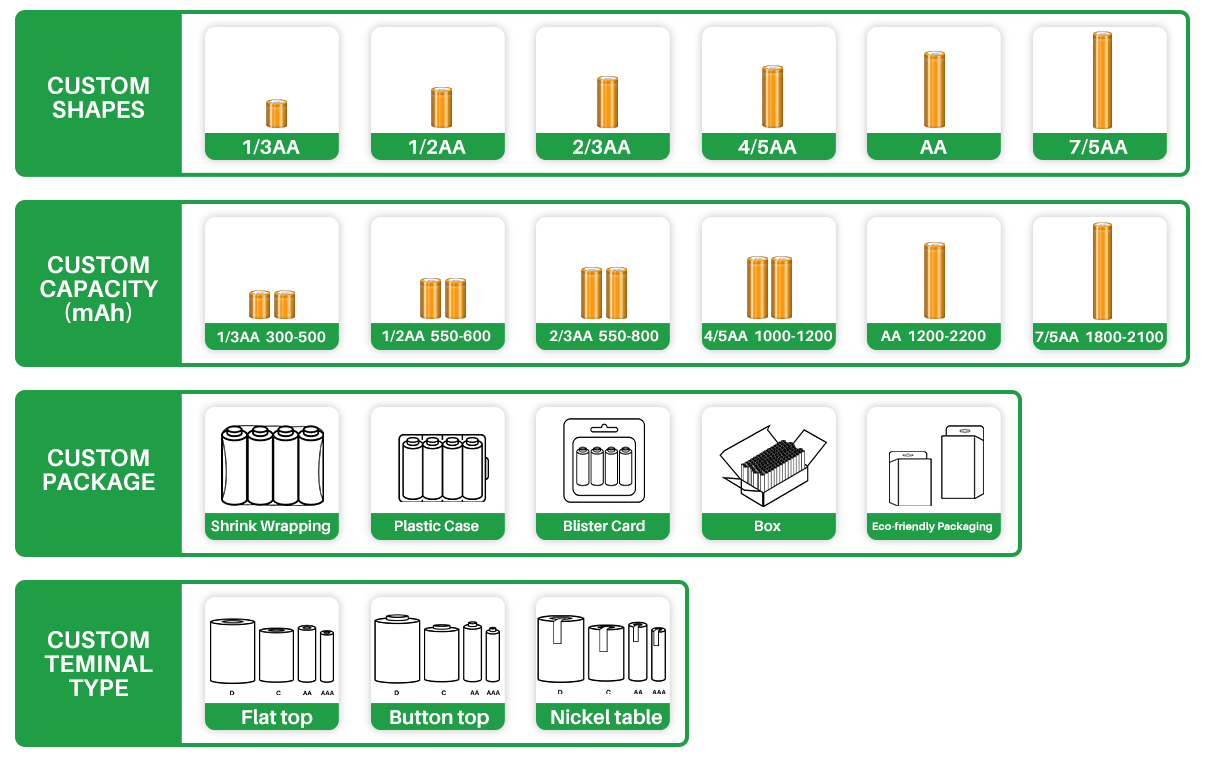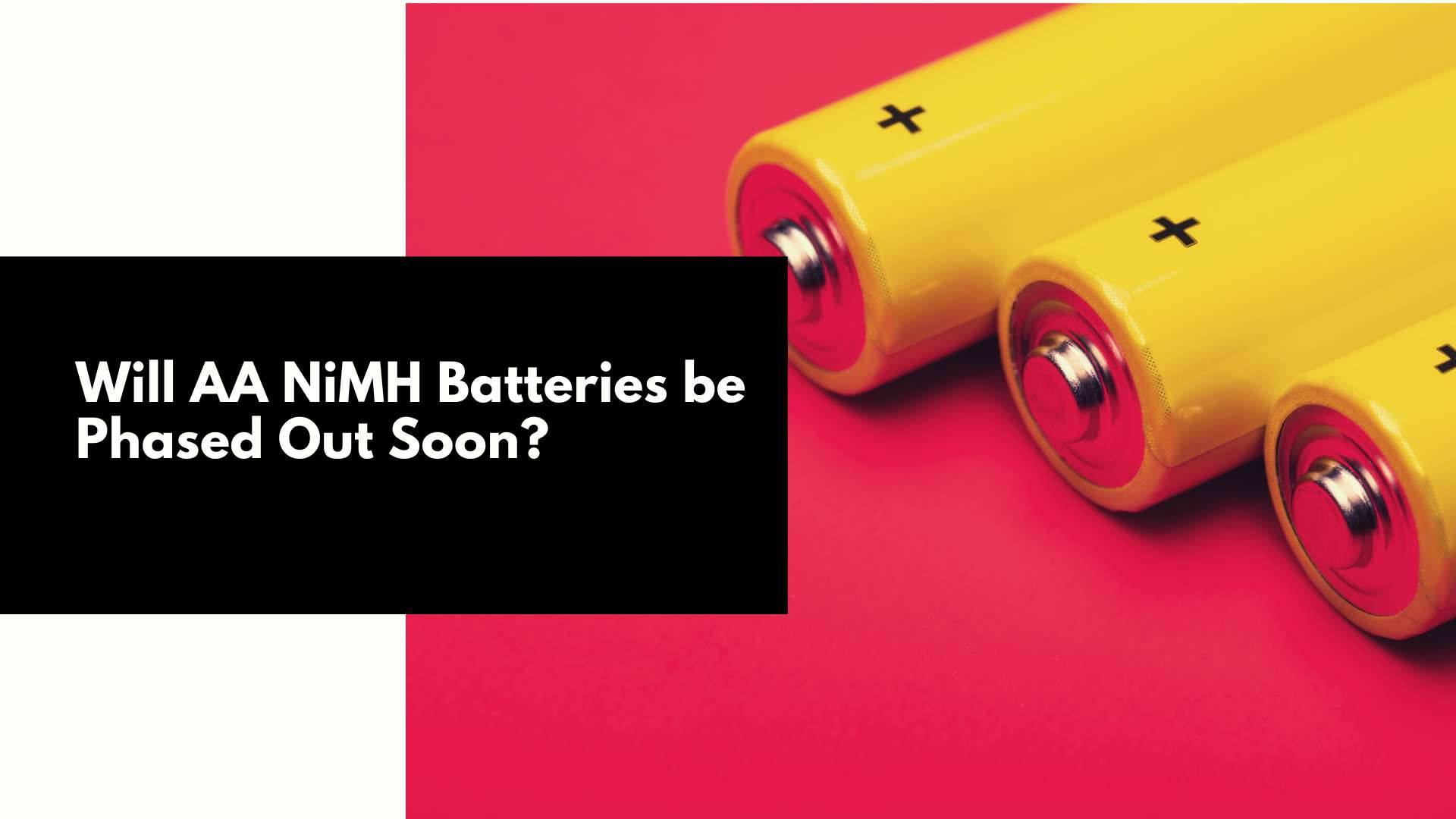Nickel-metal hydride (NiMH) rechargeable batteries have been popular for powering consumer devices for decades. However, recent trends have led many to speculate whether NiMH batteries, especially the popular AA size, will soon become obsolete. For example, many people discuss “Are NiMH Batteries Dying Out?” via the Candle Power forum. B2B battery buyers and purchasers need to be aware of the ongoing developments in the battery industry. As technology evolves, keeping an eye on emerging trends and new battery technologies will be crucial for making informed purchasing decisions. In this article, we will discuss more about the current state of AA NiMH batteries, their advantages, potential challenges, and the likelihood of them being phased out in the near future.
The Current State of AA NiMH Batteries
NiMH batteries have been popular among consumers and businesses for years. They offer a reliable, cost-effective solution for various applications, from consumer electronics to industrial equipment. Despite the emergence of new technologies, such as Li-ion (Lithium-ion) and Li-Po (Lithium Polymer) batteries, NiMH batteries still hold a significant market share, especially for AA-sized cells.
AA NiMH batteries have several advantages that have led to their widespread adoption. They are a mature, low-cost technology with good energy density, which means they can pack plenty of power for their size and weight. They also have a long lifespan and can provide hundreds of recharge cycles. AA NiMH batteries have been very dependable for many basic household devices like remote controls, toys, and portable electronics.
Weijiang Power has rich experience providing customized AA NiMH batteries for industrial and consumer use. Besides the standard AA size NiMH battery, we also provide some other special AA-size NiMH batteries, like 1/3 AA size NiMH battery, 1/2 AA size NiMH battery, 2/3 AA size NiMH battery, 4/5 AA size NiMH battery, and 7/5 AA size NiMH battery.

Challenges Facing AA NiMH Batteries
However, NiMH battery technology faces significant challenges to remain competitive in the future. Lithium-ion (Li-ion) batteries have become dominant for more advanced applications where higher energy density and battery life are most important. The cost of Li-ion batteries has also decreased dramatically in recent years. At the same time, many newer devices are being built with rechargeable Li-ion packs that can’t be replaced by the user, reducing the demand for AA and other consumer-replaceable batteries.
Will AA NiMH Batteries be Phased Out Soon?

Given the current market trends and technological advancements, AA NiMH batteries are unlikely to be phased out soon. Their affordability, safety, and compatibility with numerous devices make them a reliable option for battery buyers or purchasers.
As we have mentioned above, AA NiMH batteries still face several challenges. Several major factors will determine if and how quickly AA NiMH batteries will be phased out.
✱Cost - If the cost gap between NiMH and Li-ion batteries continues to shrink, it may become uneconomical for manufacturers to build AA NiMH battery-powered devices. However, NiMH will likely maintain a cost advantage for basic, high-volume applications.
✱New device compatibility - As more connected smart homes and portable electronics adopt non-replaceable rechargeable batteries, the number of devices that can use AA NiMH batteries is diminishing. However, universal battery types like AA are still convenient for certain simple devices.
✱Environmental impact - There is increasing pressure to reduce single-use plastics and transition to rechargeable batteries. AA NiMH batteries are a rechargeable option already in use by many consumers, so they are well-positioned if rechargeability becomes a priority. However, Li-ion has an energy density advantage for smaller, lighter devices.
✱Energy density - For applications where long runtime and minimal size and weight are most important, Li-ion batteries will likely continue to dominate due to their superior energy density over NiMH chemistry. However, the energy density of NiMH will still fulfill the needs of many basic devices.
Conclusion
From the analysis above, it seems unlikely that AA NiMH batteries will be completely phased out shortly, especially given their cost advantage for high-volume applications and their environmental friendliness as a rechargeable option. However, they will face increasing competition from Li-ion for more advanced devices demanding extended runtimes, small sizes, and connected functionality. AA NiMH batteries may become niche, but will probably remain relevant and appreciated where their unique benefits of lower cost, dependability and sustainability are valued by manufacturers and consumers alike.
Additionally, as a China NiMH battery factory, we are constantly working to improve our AA NiMH batteries and ensure their long-term viability in the market.
Post time: Jun-30-2023





